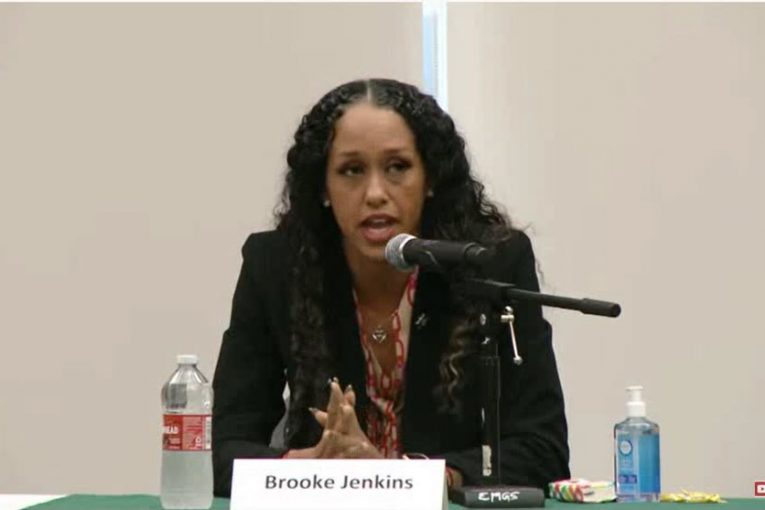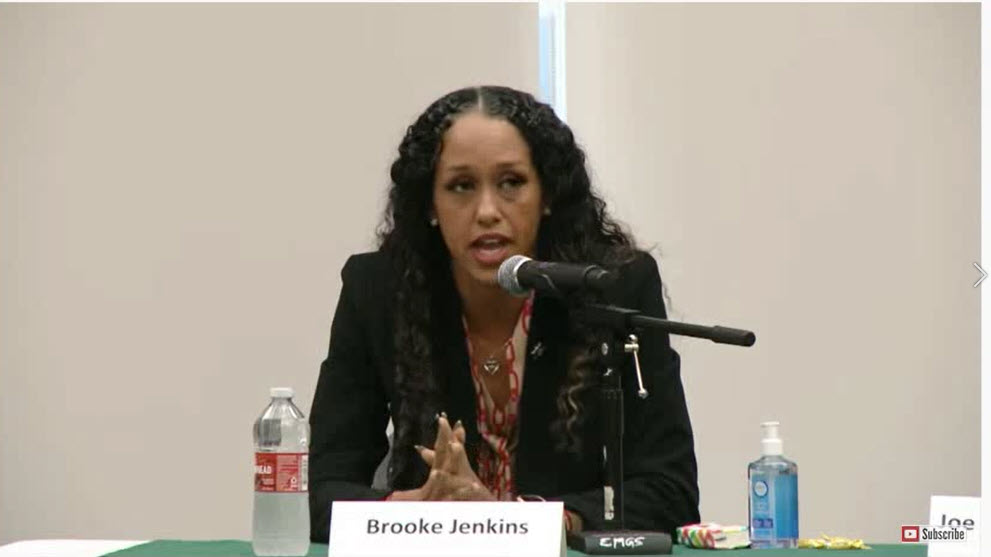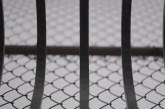

By David M. Greenwald
Executive Editor
San Francisco, CA – A week after revelations of DA Brooke Jenkins illegally leaking internal DA documents to fellow Deputy DA Don du Bain in 2021, retired Judge Martha Goldin filed a second bar complaint.
The Mission Local publication last week reported that Jenkins sent an email to du Bain’s personal email, with the subject line “Troy McAllister Police Reports.” The email contained three documents including an unredacted police report, while another one contained McAlister’s summary criminal history record, commonly known as a “rap sheet.”
Critically, “Although Jenkins sent the police reports to Don du Bain when they were both still employed as Assistant District Attorneys, neither Jenkins nor du Bain had ever been assigned to the prosecution of Troy McAlister.”
According to the bar complaint, “Penal Code sections 11105 and 13300 make clear that those receiving rap sheets containing criminal information history must have a legitimate and compelling statutory reason for access to such information.
“It is undisputed that neither Brooke Jenkins nor Don du Bain were ever involved in the prosecution of Troy  McAllister,” the complaint noted.
McAllister,” the complaint noted.
Goldin argues that the purpose of this was political.
She writes, “The recall campaign publicly disseminated a written document with information about Troy McAlister which, in general, is only found on rap sheets. Both Jenkins and du Bain also used rap sheet information in their media appearances on behalf of that campaign.”
Jenkins has tried to sweep aside allegations, telling local media, “While I was an assistant district attorney, I inadvertently sent these files to a personal email address of another assistant district attorney. I intended to send them to his work email address. These files were never used on the recall campaign, or for any political purposes, and were never disclosed to the public.”
Goldin counters that “Jenkins’ excuses do not justify her clearly unlawful and unethical conduct. These statements are disingenuous.”
Legal experts have dismissed the defense by Jenkins.
Current San Mateo DA Steve Wagstaffe and former LA DA Gil Garcetti both indicated that they believed this was a fireable offense.
UC Hastings Professor Richard Zitrin told local media, “The question is not what email she sent it to, but why is she sending it at all? I can’t think of a legitimate law-enforcement purpose for sending this rap sheet to anyone as she’s about to leave the office.”
Meanwhile Attorney Marc Zilversmit called it “spin” and told the media, “The question is: Why are they accessing these documents for a case they are not working on? And then sharing the gist of the rap sheet in media comments in support of the recall?”
The Vanguard spoke with Santa Clara Law Professor David Ball, who noted, “When you’re working with sensitive government documents you don’t get to use those, you don’t get to send those home. Even when I was working for a judge, I asked for permission first, with any work product, I had to redact – and that’s understood.”
He noted, beyond the work product, “there’s also the ethical component, which is that lawyers are supposed to keep their work product private and not leak it.”
Ball expressed concern about this sort of politicization of the process.
“This is the kind of politics where it’s getting dirt on your entities,” he explained. “That’s not the way this information is supposed to be treated.”
That path to accountability is not clear. Barring some sort of late surprise, it does not seem likely that even this series of scandal surrounding the appointed DA would lead to the voters ousting her just months into her job.
That would leave it to the Attorney General and the bar.
“Really, if she’s not voted out, it’s really hard to force somebody out,” Ball explained. “I’m not aware of any time that California Attorney General has got to prosecute a district attorney like this. Certainly not for a misdemeanor.”
He added, “The bar is very reluctant to decertify somebody. It’s possible, but the California bar is not widely seen as a really strict enforcer of its code of ethics.”
The case out of Los Angeles just last week illustrates the lack of action by the bar. The LA Times reported on November 3, “The State Bar of California received 205 complaints against Los Angeles legal legend Tom Girardi alleging he misappropriated settlement money, abandoned clients and committed other serious ethical violations over the course of his four-decade career.”
Despite this, the paper reported that “the State Bar took no public action against Girardi until after his Wilshire Boulevard firm collapsed two years ago.”
Worse yet, “As his stature as a trial attorney and political powerbroker grew, officials closed scores of complaints against him without doing any investigation and rejected dozens of others for “insufficient evidence,” the records show.”
Moreover, a 2010 study by the Innocence Project found that in over 700 cases of prosecutorial misconduct, only six resulted in any sort of disciplinary action.
Ball said, “It might be the kind of thing that until there is more political pressure on her, that she will stay in office.”






